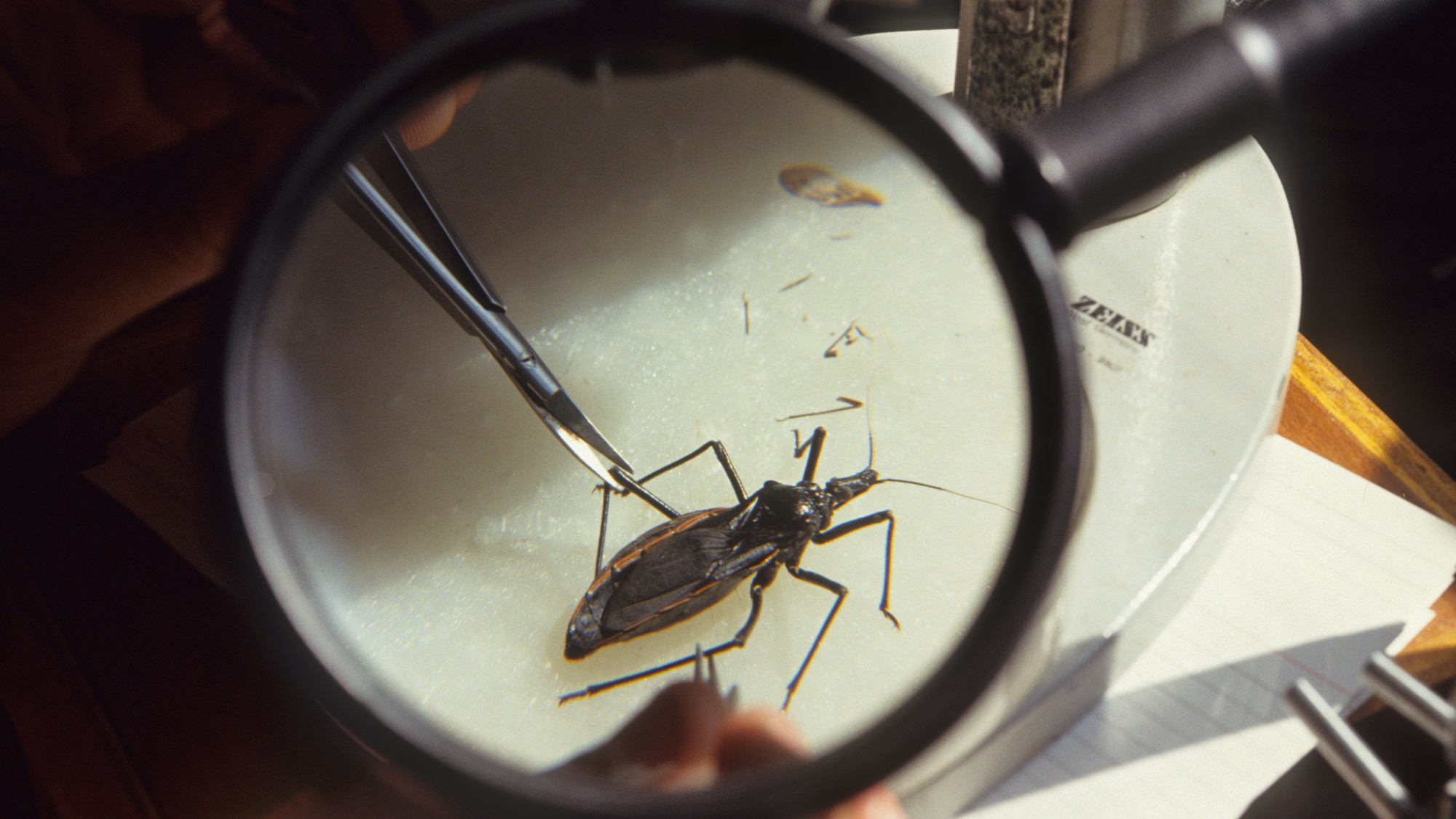EPA to classify some 'forever chemicals' as hazardous


A free daily email with the biggest news stories of the day – and the best features from TheWeek.com
You are now subscribed
Your newsletter sign-up was successful
The Environmental Protection Agency on Friday proposed classifying certain so-called "forever chemicals" — which are believed to have serious health effects, and can be found in hundreds of household items — as hazardous substances, CNN reports.
Though polyfluoroalkyl and perfluoroalkyl substances, or PFAS, will not be banned as a result, the proposed new designation is still "one the most significant actions the EPA has taken to date" in addressing the compounds, notes The New York Times.
Forever chemicals take a long time to break down, and have been known to bleed into water and soil, as well as the blood of people and animals, explains CNN. New research also suggests the substances are far more dangerous to human health than previously thought, with links to heart issues, cancers, and immune problems.
The Week
Escape your echo chamber. Get the facts behind the news, plus analysis from multiple perspectives.

Sign up for The Week's Free Newsletters
From our morning news briefing to a weekly Good News Newsletter, get the best of The Week delivered directly to your inbox.
From our morning news briefing to a weekly Good News Newsletter, get the best of The Week delivered directly to your inbox.
The new EPA proposal would classify two commonly used PFAS — known as PFOA and PFOS — as hazardous substances under Superfund regulations, thereby making it easier for the government to mandate polluters pay fines for violations, as well as clean up their own hazards, CNN and The Washington Post report.
"Communities have suffered far too long from exposure to these forever chemicals," EPA administrator Michael Regan said. The new rule will "both help protect communities from PFAS pollution and seek to hold polluters accountable for their actions."
Activists have praised the new designation, but Republicans are concerned it unfairly burdens manufacturers and businesses, the Times notes.
Once the proposal is published in the federal register, the public will have 60 days to comment before the rule becomes final.
A free daily email with the biggest news stories of the day – and the best features from TheWeek.com
Brigid Kennedy worked at The Week from 2021 to 2023 as a staff writer, junior editor and then story editor, with an interest in U.S. politics, the economy and the music industry.
-
 Samurai: a ‘blockbuster’ display of Japanese heritage
Samurai: a ‘blockbuster’ display of Japanese heritageThe Week Recommends British Museum show offers a ‘scintillating journey’ through ‘a world of gore, power and artistic beauty’
-
 BMW iX3: a ‘revolution’ for the German car brand
BMW iX3: a ‘revolution’ for the German car brandThe Week Recommends The electric SUV promises a ‘great balance between ride comfort and driving fun’
-
 Munich Security Conference: a showdown between Europe and Trump?
Munich Security Conference: a showdown between Europe and Trump?Today’s Big Question Report suggests European leaders believe they can no longer rely on the US for military support – but decoupling is easier said than done
-
 Europe’s apples are peppered with toxic pesticides
Europe’s apples are peppered with toxic pesticidesUnder the Radar Campaign groups say existing EU regulations don’t account for risk of ‘cocktail effect’
-
 Trump HHS slashes advised child vaccinations
Trump HHS slashes advised child vaccinationsSpeed Read In a widely condemned move, the CDC will now recommend that children get vaccinated against 11 communicable diseases, not 17
-
 FDA OKs generic abortion pill, riling the right
FDA OKs generic abortion pill, riling the rightSpeed Read The drug in question is a generic version of mifepristone, used to carry out two-thirds of US abortions
-
 Kissing bug disease has a growing presence in the US
Kissing bug disease has a growing presence in the USThe explainer The disease has yielded a steady stream of cases in the last 10 years
-
 RFK Jr. vaccine panel advises restricting MMRV shot
RFK Jr. vaccine panel advises restricting MMRV shotSpeed Read The committee voted to restrict access to a childhood vaccine against chickenpox
-
 Texas declares end to measles outbreak
Texas declares end to measles outbreakSpeed Read The vaccine-preventable disease is still spreading in neighboring states, Mexico and Canada
-
 RFK Jr. shuts down mRNA vaccine funding at agency
RFK Jr. shuts down mRNA vaccine funding at agencySpeed Read The decision canceled or modified 22 projects, primarily for work on vaccines and therapeutics for respiratory viruses
-
 Measles cases surge to 33-year high
Measles cases surge to 33-year highSpeed Read The infection was declared eliminated from the US in 2000 but has seen a resurgence amid vaccine hesitancy
